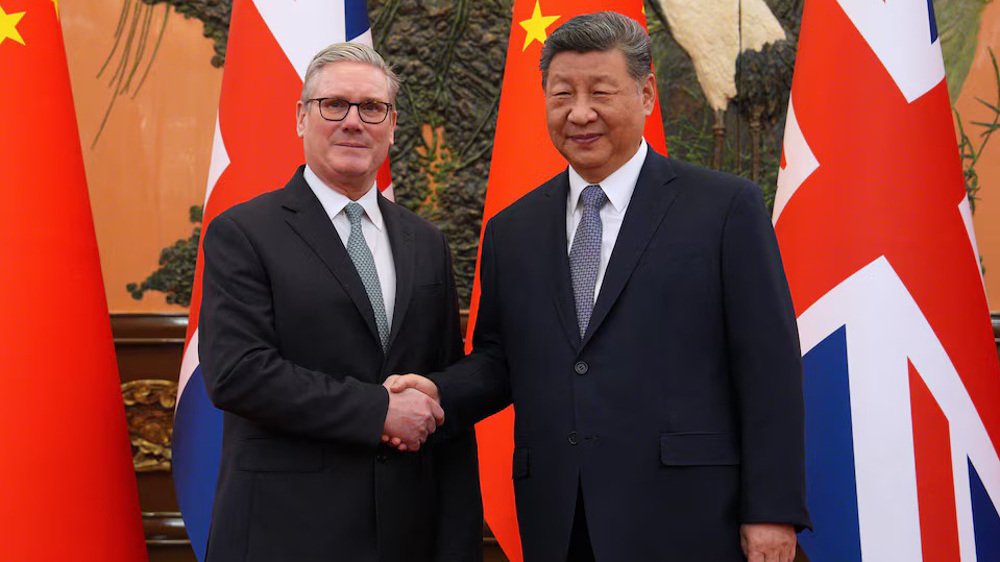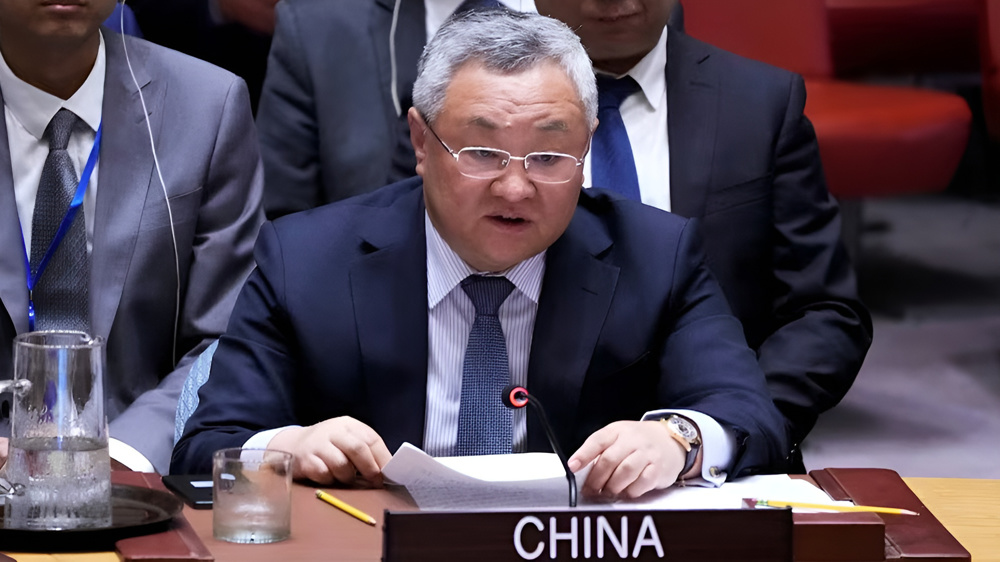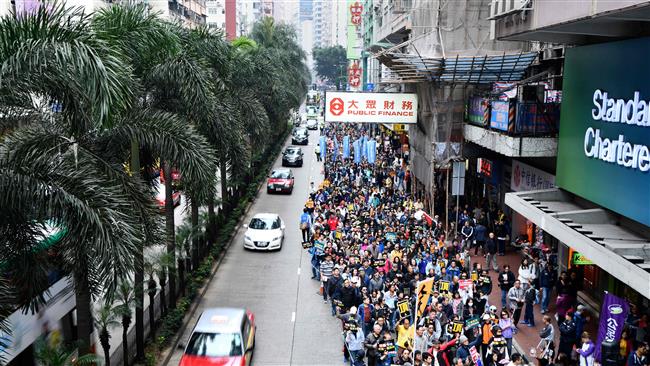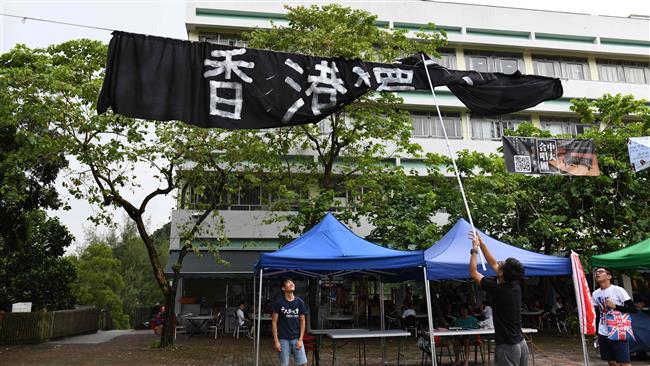Hong Kong protest censures activist’s election ban
Protesters in Hong Kong gathered outside the government's headquarters Sunday evening after a leading pro-democracy activist was barred from standing as a candidate in upcoming elections.
The ban on 21-year-old Agnes Chow, who was at the forefront of mass 2014 Umbrella Movement rallies calling for political reform, is the latest blow for the democracy camp and another sign that Beijing is tightening its grip on the semi-autonomous city.
It reflects China's increasing anger over what it sees as any challenge to its sovereignty from activists, some of whom advocate a full split from the mainland.
The government Saturday rejected Chow's application to stand in a by-election in March because her party Demosisto supports self-determination for Hong Kong.
Chow was among leading activists, lawmakers, academics and students who addressed around 2,000 protesters packed onto pavements outside the government offices.
"The government is trying to get rid of all the political parties who are against them," said Chow who was greeted with applause.
"But even though we are under pressure and are suppressed, we still insist on human rights and freedoms," she added.

Co-founded by high-profile democracy activist Joshua Wong, Demosisto does not campaign for independence but advocates self-determination and a referendum for Hong Kong people to decide how they want to be governed.
The ban on Chow has wide-scale implications for other similar activists wanting to stand for office, including Wong, who is currently out on bail after being jailed for his role in the 2014 protests.
The pro-Beijing Hong Kong government has previously barred independence activists from standing for office, but Chow's ban is the first against a more moderate campaigner.
Since the Umbrella Movement ended with no concessions on reform there have been increasing signs the city's cherished freedoms are under threat.
The jailing of democracy activists, the disqualification of opposition lawmakers from the legislature at Beijing's request and the lack of answers over the disappearance of five Hong Kong booksellers who resurfaced in the mainland has fuelled concern.
Hong Kong was handed back to China by Britain in 1997 under a "one country, two systems" deal that grants it a partially elected legislature and rights unseen on the mainland, including freedom of speech and the right to protest.
The agreement is supposed to last until 2047. But retiree Johnson Lui, who protested Sunday, said he felt the handover deal was dead.
"The Beijing government is meddling in every aspect of Hong Kong affairs. It's not fair and it contradicts the Sino-British declaration," Lui told AFP.
He called on the international community to pay more attention to the erosion of freedoms in the city.
"Western countries just want to do business with Beijing. That's what they care for -- they don't care about what happens in Hong Kong," Lui said.
Concerns over the erosion of rights in Hong Kong were raised in the British parliament's House of Commons and House of Lords last week.
(Source: AFP)
UN experts decry Israeli bill allowing execution of Palestinians
Epstein–Barak recording exposes multimillion-dollar fees paid to Tony Blair
UK Palestine Action activists acquitted of burglary in Elbit factory raid
Oman to broker fresh round of Iran-US talks on February 6: Reports
VIDEO | Iran unveils space technology milestones
Israel to shut water, electricity at UNRWA facilities in occupied territories
Ex-Israeli minister calls for safe shelters as Tel Aviv pushes for war on Iran
President Aoun slams Israel for spraying toxic chemicals over south Lebanon















 This makes it easy to access the Press TV website
This makes it easy to access the Press TV website